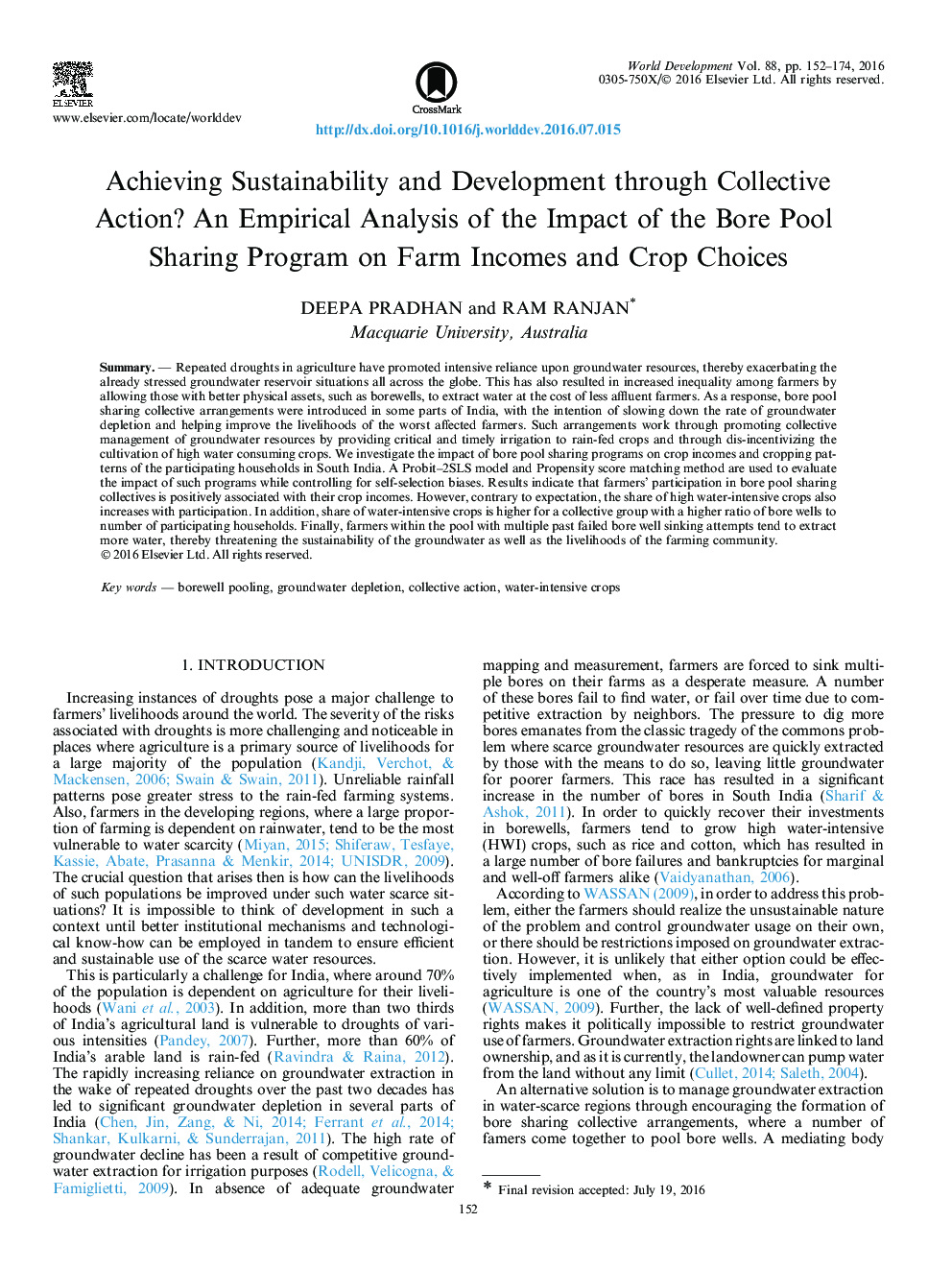| کد مقاله | کد نشریه | سال انتشار | مقاله انگلیسی | نسخه تمام متن |
|---|---|---|---|---|
| 990538 | 1481130 | 2016 | 23 صفحه PDF | دانلود رایگان |
• We test for the impacts of bore well sharing among farmers in South India.
• Participation in bore pool sharing increases crop incomes and also shares of water intensive crops.
• Non-bore well owners in the pool are found to increase their water intensive crop shares.
• Those participating in farmer schools tend to derive higher crop incomes when also in the bore pool.
• Opportunistic exploitation of bore pools by richer farmers can further aggravate groundwater problem.
SummaryRepeated droughts in agriculture have promoted intensive reliance upon groundwater resources, thereby exacerbating the already stressed groundwater reservoir situations all across the globe. This has also resulted in increased inequality among farmers by allowing those with better physical assets, such as borewells, to extract water at the cost of less affluent farmers. As a response, bore pool sharing collective arrangements were introduced in some parts of India, with the intention of slowing down the rate of groundwater depletion and helping improve the livelihoods of the worst affected farmers. Such arrangements work through promoting collective management of groundwater resources by providing critical and timely irrigation to rain-fed crops and through dis-incentivizing the cultivation of high water consuming crops. We investigate the impact of bore pool sharing programs on crop incomes and cropping patterns of the participating households in South India. A Probit–2SLS model and Propensity score matching method are used to evaluate the impact of such programs while controlling for self-selection biases. Results indicate that farmers’ participation in bore pool sharing collectives is positively associated with their crop incomes. However, contrary to expectation, the share of high water-intensive crops also increases with participation. In addition, share of water-intensive crops is higher for a collective group with a higher ratio of bore wells to number of participating households. Finally, farmers within the pool with multiple past failed bore well sinking attempts tend to extract more water, thereby threatening the sustainability of the groundwater as well as the livelihoods of the farming community.
Journal: World Development - Volume 88, December 2016, Pages 152–174
